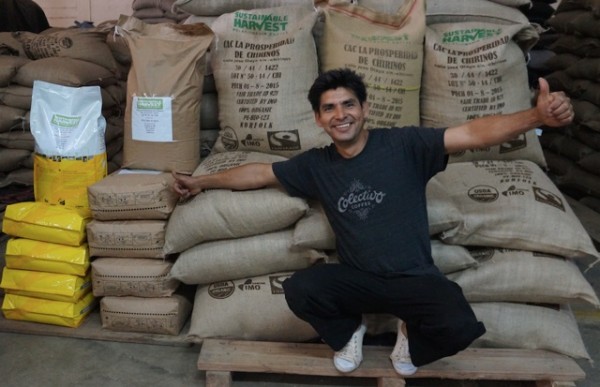Green coffee importer Sustainable Harvest has launched an innovative research project examining how bag type during green coffee warehousing may affect cup quality.
The experiment is an extension of in-house research the company has been conducting since 2012 related to the control of variables throughout the transportation and warehousing cycle.
“Transit from origin to port typically takes 30 to 45 days — a short enough time period that the choice of packaging doesn’t often impact coffee quality,” Sustainable Harvest’s Director of Coffee Operations Midori Hartford wrote on behalf of the company in late January. “However, we know that many roasters we work with want to keep their coffee for longer periods of time in their warehouses, and various packaging options can yield different quality results when it comes to storing green coffee.”
The goal, she says, “is to employ the roasting community to help us evaluate how different packaging options impact flavor over time.”
For the project, Sustainable Harvest is using blend of coffees from the Chirinos cooperative in Cajamarca, Peru, which the company’s Portland-based cupping team scored as an 85-plus. The coffee has recently arrived at port in Norfolk, Va., and Sustainable Harvest plans to pull samples from each of six bag types once every three months for a year.
The company is using traditional jute bags, plastic-composed bags made by Jutex, multilayer hermetic plastic bags with a gas barrier made by GrainPro, paper bags with plastic lining, heavy-duty 20k bags made by Brazilian exporter Bourbon Specialty Coffee, and multilayered hermetic bags made by Ecotact.
“We have assembled a team of cuppers culled from some of the country’s leading roasting companies that will assist Sustainable Harvest’s U.S.- and origin-based cupping teams in evaluating each three-month sample,” wrote Hartford. “After a year has passed, we’re confident that we will have accumulated telling data.”
Nick Brown
Nick Brown is the editor of Daily Coffee News by Roast Magazine.







Comment